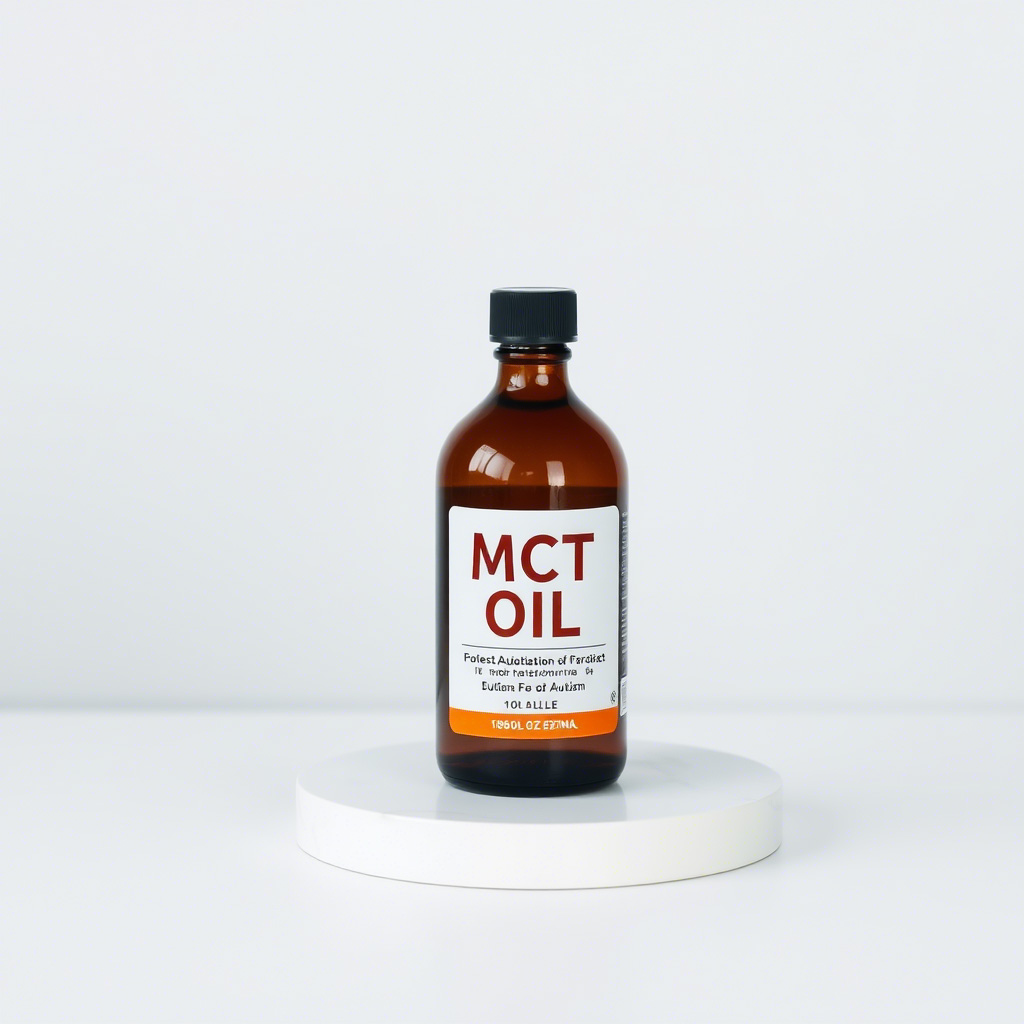MCT Oil for Autism is increasingly recognized as a promising intervention in managing the symptoms of autism spectrum disorder (ASD). With its ability to rapidly convert into ketones, MCT oil provides a unique energy source for the brain, potentially enhancing cognitive function, focus, and behavior regulation in individuals with autism. As research continues to explore its benefits, MCT oil for autism is being integrated into holistic approaches to support both children and adults with ASD. This natural supplement offers an innovative, complementary option for improving the quality of life, providing a new avenue for families seeking alternative solutions to manage autism-related challenges.
Click to use Silverigroup personal shopper services
What is MCT Oil?
MCT (Medium-Chain Triglycerides) oil is a type of fat that is made up of medium-length chains of fatty acids. Unlike long-chain triglycerides (LCTs), which are more common in most foods, MCTs are quickly digested and absorbed by the body. This unique property allows MCT oil to be converted into energy more efficiently and rapidly, making it a popular supplement for those looking to boost mental clarity, energy, and overall wellness.
MCT oil is derived primarily from coconut oil and palm kernel oil, both of which are rich in medium-chain fatty acids. The oil contains four primary types of MCTs: caprylic acid (C8), capric acid (C10), lauric acid (C12), and caproic acid. Among these, C8 and C10 are considered the most effective in providing quick energy and cognitive benefits.
One of the main benefits of MCT oil is its ability to produce ketones, a powerful alternative energy source for the brain and body. This is especially useful for individuals following ketogenic diets or those with conditions like Alzheimer’s disease or autism, where the brain can benefit from ketones as a fuel source instead of glucose. MCT oil is also favored in weight management due to its potential to promote fat burning and improve metabolism.
Click to buy citric acid from Silvairgroup
| Characteristic | Details |
|---|---|
| Source | Derived primarily from coconut oil and palm kernel oil. |
| Type of Fat | Medium-chain triglycerides (MCTs), with shorter carbon chains. |
| Absorption | Quickly absorbed by the body and converted into energy. |
| Energy Source | Provides an efficient source of ketones for the brain. |
| Main Types of MCTs | Caprylic acid (C8), Capric acid (C10), Lauric acid (C12). |
| Cognitive Benefits | Supports brain function, focus, and mental clarity. |
| Uses | Commonly used for energy, weight management, and cognitive support. |
| Taste | Mild, neutral flavor. |
| Digestibility | Easily digestible, with minimal gastrointestinal issues. |

MCT Oil for Autism: A Natural Alternative to Traditional Therapies
MCT oil, derived from coconut and palm kernel oils, is increasingly being considered as a natural alternative to traditional autism therapies. Unlike other fats, MCTs (medium-chain triglycerides) are quickly converted into ketones by the liver, which the brain can use as an efficient energy source. This has led to growing interest in MCT oil for autism, as it may help improve cognitive function, focus, and behavior regulation in individuals with autism spectrum disorder (ASD).
Traditional therapies for autism often involve behavioral interventions, speech therapy, and medication. However, many families are seeking complementary or alternative treatments that support overall well-being. MCT oil for autism is seen as a promising option due to its ability to support brain function and energy levels without the side effects often associated with pharmaceuticals.
Click to buy Beluga Fresh Frozen from Silverigroup
Research is still ongoing, but early studies suggest that MCT oil may help reduce symptoms such as hyperactivity, social withdrawal, and communication difficulties. Additionally, MCT oil is a natural, safe supplement that can be easily incorporated into daily routines, providing an accessible option for families looking for holistic approaches to manage ASD symptoms.
While more research is needed to fully understand its effectiveness, MCT oil for autism offers an exciting alternative to traditional therapies for those exploring natural ways to support their loved ones with autism.
| Advantages | Considerations |
|---|---|
| Boosts Cognitive Function: Provides brain energy for focus. | Limited Research: More studies are needed. |
| Supports Behavioral Regulation: May reduce hyperactivity. | Individual Responses Vary: Not all may benefit. |
| Natural and Safe: Easy to incorporate into daily routine. | Requires Supervision: Should be guided by a professional. |
| Alternative to Medications: A natural option alongside therapies. | Doesn’t Replace Other Treatments: Complementary use only. |
Role of MCT Oil for Autism in Cognitive Development
MCT oil has gained attention for its potential to support cognitive development in individuals with autism spectrum disorder (ASD). The brain relies heavily on glucose for energy, but in some cases, the body may not efficiently convert glucose, especially in individuals with ASD. MCT oil, which is rapidly converted into ketones, offers an alternative energy source for the brain. Ketones can provide quick and efficient fuel, potentially improving cognitive clarity, memory, and focus.
- Improved Energy for the Brain: MCT oil provides an efficient energy source through ketones, enhancing cognitive function;
- Better Focus and Attention: MCT oil may help individuals with ASD maintain focus during learning tasks and social interactions;
- Support for Cognitive Delays: Individuals with ASD who experience cognitive delays may benefit from MCT oil’s ability to enhance memory and mental clarity;
- Behavior Regulation: By providing consistent energy, MCT oil can support improved behavior regulation, which is essential for learning;
- Holistic Approach: MCT oil, when used alongside other therapies, may offer a natural and complementary solution for cognitive development in individuals with autism.

